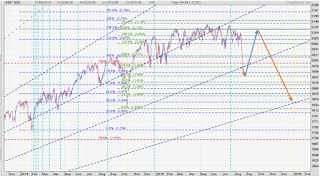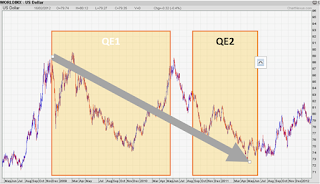IMPULSIVE AUGUST MARKETS - The S&P 500

We are in a "corrective market", so goes the headline. Since last Monday, the S&P 500 fell from 2103 to 1971. That is a 6.3% drop in the space of 5 trading days, the largest since - October 2014. Indeed, the impulsiveness of the correction mirrors events of last October. Of course, the media argues 24/7 as to when the correction started and why. Was it the devaluation of the Yuan? Events in Greece? The commodity slump? A nightmare vision of Trump as President of the USA? In reality, once the selling starts, many punters ignore individual signals of their local markets, economic divergence or individual risk considerations. They just get out. But just what do you do, if you are still invested? And if you are out, when do you get back in? The Greece debt crisis is not over yet: the country is going to the polls - and might end up totally rejecting the tough measures of the recent accord. That would then become a trigger for much greater volatility,and cause hav

